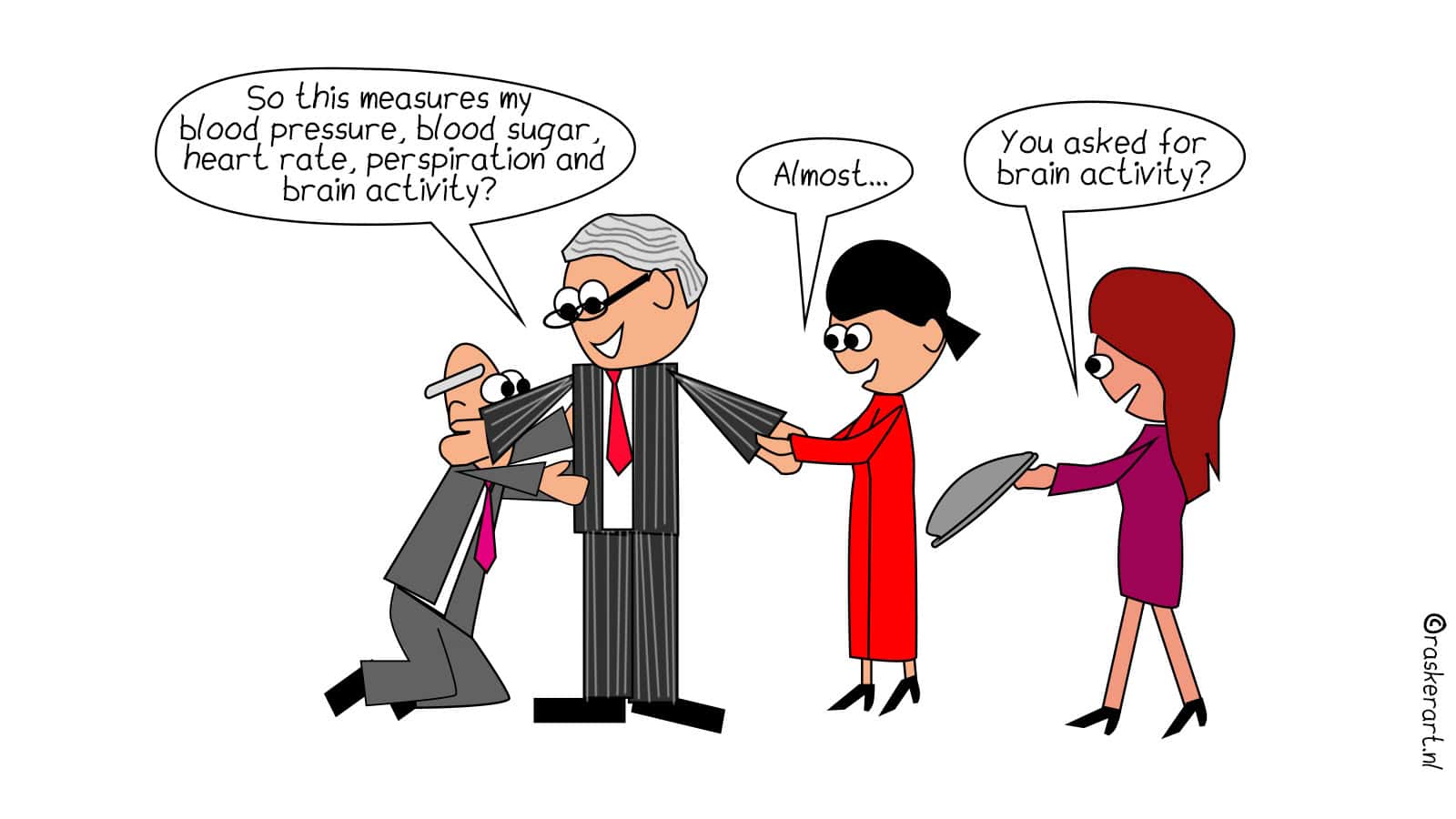
About DuckDuckGoose
- Founders: Mark Evenblij, Parya Lotfi and Joris Mollinga
- Founded in: 2020
- Employees: 12
- Money raised: +/- €300,000
- Ultimate goal: preventing fraud and disinformation
Nowadays, you can’t always tell the difference between real videos and fake ones. That’s great for satirical videos, but it can also be a cause of disinformation and financial fraud. Start-up DuckDuckGoose recognized the seriousness of the problem and has developed a deepfake detection tool. One of the customers they already have on board is the Dutch House of Representatives. In other words, when a deepfake of the prime minister Mark Rutte threatens to go viral, they call DuckDuckGoose. In this instalment of Start-up of the day, co-founder Mark Evenblij talks more about the development and the innovative company.

How does your detector work?
“Our detector is an AI system. If you don’t trust certain visual content, you can send a picture to our system. In our system, we have integrated thousands of videos to be able to tell the difference between real and fake. The system identifies a kind of highlight in the video, a part that may not be true. But that’s not all – we’re also very preoccupied with why the system makes certain choices, so it has to be able to justify its conclusions. Next, all that is looked at by human experts to pinpoint the problem and also to figure out why that problem is there. This is reported back to our customers.”

What problem are you trying to solve?
“Deepfake allows you to create photos, videos, voice messages and texts that look real but aren’t. Since it can look very lifelike, there is a lot of fraud. For instance, since the corona pandemic, more and more banks want you to be able to do everything digitally, but then you are required to identify yourself digitally as well. Digital ID identification involves uploading a photo of your ID or submitting a short video of yourself. For the Rabobank photos, you have to look left and right, while the ING flashes colors in your face. So that can be exploited by deepfakes and that’s how financial fraud can eventually be committed. That’s what we want to prevent.”
Why not focus on pornography? Surely the deepfake problem is much bigger there?
“That’s true, we did try that too. But it doesn’t make much sense to analyze that stuff. After all, the user already knows it’s fake. Moreover, many pornographic companies are not open to it, because the porn industry is simply not known for its ethics. And they are the ones who earn from the deepfakes. We did run a pilot with a company to check for deepfakes before content was uploaded. The company wasn’t really willing to pay. In the end, we heard nothing more from them.”
Who are your customers?
“We now have five customers in total: government bodies like the Netherlands Forensic Institute and the House of Representatives, a private Dutch company that makes forensic video analysis tools, and two ID verification companies.”
What is your biggest challenge?
“Because deepfake fraud is a relatively ‘new’ problem, sometimes it’s still a challenge to convince prospective customers of the importance of our tool. Fraud is being committed in order to steal from large banks, and with that, huge sums of money are being extorted, as has already happened in Hong Kong. Fortunately, this is only happening on a small scale, but still.”

How do you expect deepfakes will unfold where identification is concerned?
“More and more large companies are starting to protect themselves against financial fraud, which will lead fraudsters to try it on smaller companies or individuals. What you see a lot of now are those whatsapp messages that kids supposedly send to their parents asking for a large sum of money. In the future, that won’t just be a message, you will get a video call from a person who looks and sounds exactly like your son or daughter. I don’t think parents or grandparents will be able to see through that and figure out that something isn’t right.”
What was it like to raise the funding for DuckDuckGoose?
“In fact, it went pretty easy. We’re generating our own revenue and we have managed to get everything else we need through funds, grants and tenders. We submitted one application, but most of them we wrote ourselves. That was only a few days’ work for a couple of thousand euros. I think it works in our favor that we are solving an important social problem, there are a lot of grants available for that. And deepfakes are obviously a ‘hot topic,’ so we were also a bit lucky I guess.”








